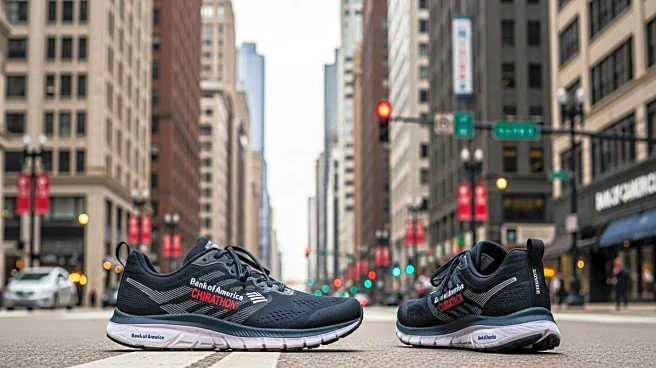What's Happening?
The Bank of America Chicago Marathon took place with 53,000 runners participating, including a significant number of first-time visitors and international participants. The marathon, held in Chicago, is a major event that not only showcases athletic talent but also significantly impacts the local economy. According to Bank of America Chicago president Rita Cook, 25% of the runners were visiting Chicago for the first time, and a third were from international locations. The event is expected to inject $680 million into the city's economy through hotel stays, restaurant visits, and local shopping. Additionally, the marathon supports philanthropic efforts, with 18,000 runners contributing to over 200 causes.
Why It's Important?
The Chicago Marathon is a crucial event for the city's economy, providing a substantial financial boost through tourism and local spending. The influx of visitors, both domestic and international, supports various sectors such as hospitality, retail, and dining. This economic activity is vital for local businesses, especially in the post-pandemic recovery phase. Furthermore, the marathon's philanthropic aspect highlights the community's commitment to social causes, with thousands of runners raising funds for charities. This dual impact of economic stimulation and social contribution underscores the marathon's significance beyond just a sporting event.
What's Next?
Looking ahead, the Chicago Marathon is likely to continue growing in popularity, attracting more participants and spectators each year. This growth could lead to increased economic benefits for the city and further opportunities for charitable fundraising. Stakeholders, including local businesses and city officials, may explore ways to enhance the marathon experience to maximize its positive impact. Additionally, the success of this year's event could inspire other cities to host similar large-scale events, leveraging sports tourism as a means of economic development.
Beyond the Headlines
The marathon's impact extends beyond immediate economic benefits, potentially influencing long-term urban planning and infrastructure development in Chicago. As the event grows, there may be increased demand for improved transportation and accommodation facilities. Moreover, the marathon's emphasis on philanthropy could foster a culture of giving and community engagement, encouraging more individuals and organizations to participate in charitable activities. This cultural shift could have lasting effects on societal values and priorities.









